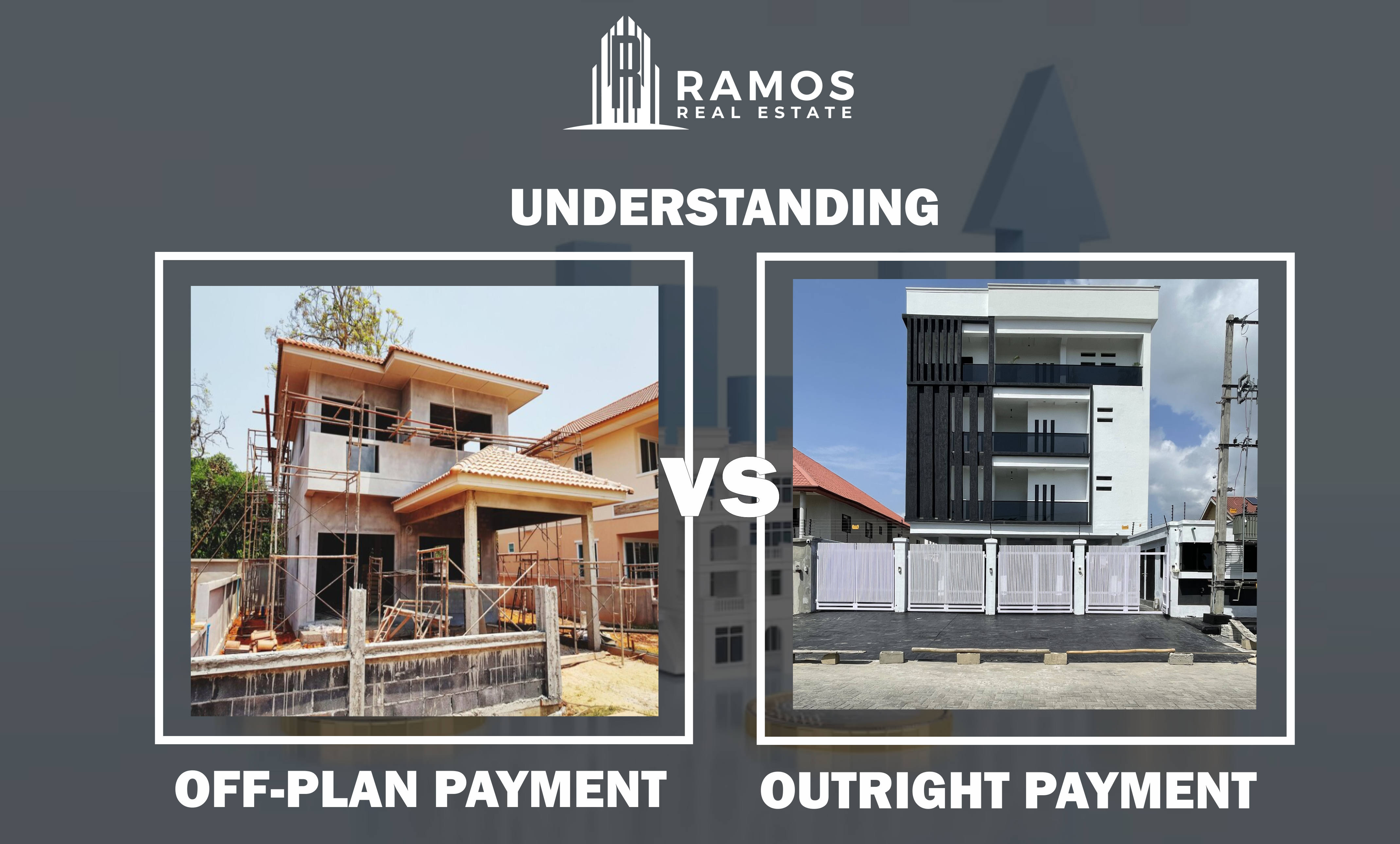Introduction
Prospective buyers often encounter the choice between off-plan payments and outright payments when purchasing property. Each payment option carries its own set of advantages and considerations, catering to different preferences and financial circumstances. In this article, we’ll delve into the differences between off-plan payments and outright payments in real estate market, as well as the respective advantages they offer to buyers.
Off-Plan Payments:
-
- Off-plan payments involve purchasing a property before construction is completed, based on architectural plans, artist renderings, and floor layouts provided by the developer.
- Buyers typically pay a deposit upfront, followed by installment payments at predetermined milestones throughout the construction process, with the final payment due upon completion and handover of the property.
- Off-plan payments allow buyers to secure properties at lower prices compared to completed units, as developers often offer pre-construction discounts or incentives to early purchasers.
- While off-plan payments offer the advantage of securing a property at a lower price, they also carry risks such as construction delays, changes in market conditions, and potential disputes with developers.
Outright Payments:
-
- Outright payments involve purchasing a property with full payment upfront, either through personal funds or financing options such as mortgage loans or bank financing.
- Buyers who opt for outright payments typically pay the entire purchase price at the time of signing the sales agreement, bypassing the instalment payments associated with off-plan purchases.
- Outright payments provide buyers with immediate ownership and possession of the property, eliminating the uncertainty and waiting period associated with off-plan purchases.
- While outright payments offer the advantage of immediate ownership and possession, they may require buyers to have substantial financial resources or access to financing options to afford the full purchase price upfront.
Advantages of Off-Plan Payments:
- Lower Initial Investment: Off-plan payments allow buyers to secure properties at lower prices compared to completed units, enabling them to enter the real estate market with a lower initial investment.
- Potential for Capital Appreciation: Properties purchased off-plan have the potential to appreciate in value from the time of purchase to completion, offering buyers the opportunity to realize capital gains upon resale.
- Payment Flexibility: Off-plan payments typically offer flexible payment plans, allowing buyers to spread payments over the construction period, easing financial burden and improving affordability.
- Customization Options: Off-plan buyers may have the opportunity to customize certain aspects of the property, such as finishes, fixtures, and layout, to suit their preferences and lifestyle.
Advantages of Outright Payments:
- Immediate Ownership and Possession: Outright payments provide buyers with immediate ownership and possession of the property, eliminating the waiting period associated with off-plan purchases.
- Avoidance of Construction Risks: By purchasing a completed property outright, buyers avoid the risks associated with off-plan purchases, such as construction delays, changes in market conditions, and potential disputes with developers.
- Streamlined Transaction Process: Outright payments streamline the transaction process, as buyers do not need to make installment payments or adhere to construction milestones, simplifying the purchase process.
- Potential for Negotiation: Buyers who make outright payments may have greater negotiating power, as developers may be more inclined to offer discounts or incentives for full payment upfront.
In conclusion, both off-plan payments and outright payments offer distinct advantages to real estate buyers, catering to different preferences, financial circumstances, and investment objectives. While off-plan payments provide lower initial investment, payment flexibility, and customization options, outright payments offer immediate ownership, avoidance of construction risks, and potential negotiation advantages. Ultimately, the choice between off-plan and outright payments depends on individual preferences, risk tolerance, and financial considerations, and buyers should carefully weigh the pros and cons of each option before making a decision.





